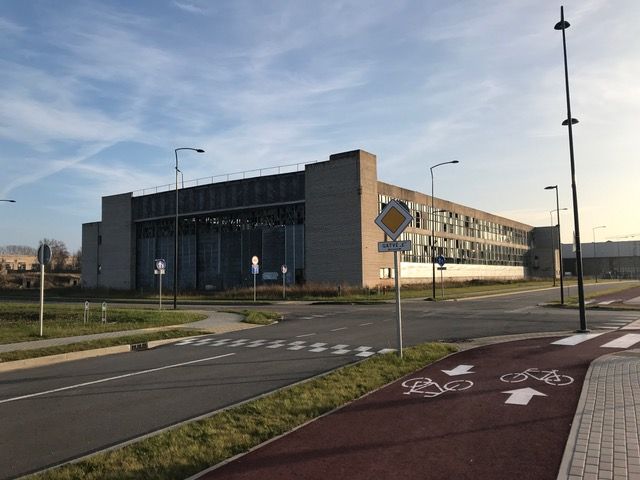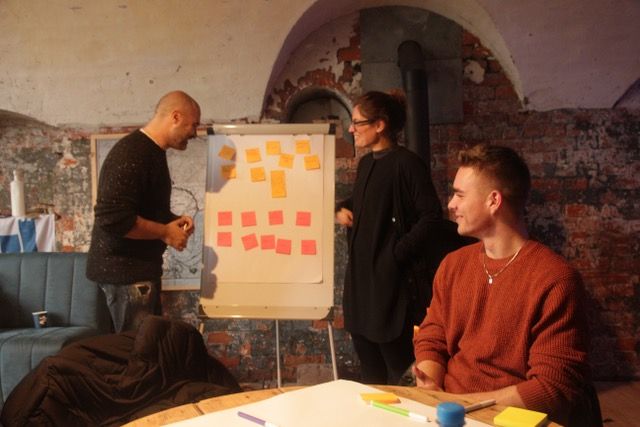The “Extremely Vast and Incredibly Close Future” workshop invited inhabitants of Aleksotas and Kaunas (Lithuania) to imagine together how to use the site of the ancient military base that soon will host the Aleksotas Innovation Park (AIIP). It was designed by T-Lab 3 Citizen-led Smartness leading partner Futuribile with the support of Ktu Design Centre and Design Library. The workshop data will be utilised by KTU to design multiple digital models of the area that will illustrate the ideas that emerged and make it possible to integrate them in regeneration plans.
In Kaunas, the “Extremely vast” of the title referred to the extent of the area, which today lacks infrastructures and is an enormous landfill; the “incredibly close” referred to the curatorial choice of focusing on the near future. Indeed, in urban regeneration contexts, speculative futures can lead to engagement fatigue because of their disconnection with the immediate reality. Moreover, the local coalition is seeking support for organising actual activities as soon as possible. In light of this, the second curatorial choice was to provide an experience and not only an ideation workshop. In this way, the probe could contribute to building the site’s aesthetics and lead participants to appropriate it.
The experience was made of three parts:
- Visit of the site
- Dream Room to spark imagination and reflection
- Brainstorming workshop
The visit was guided by the president of Kaunas fortresses association. After giving some historical highlights about the fortress hosting the workshop, the hangar, and other basic infrastructures, participants were free to explore the space and start making their head around future activities. Back at the fort, participants were given a reflection moment around some open questions in the Dream Room, a light installation inside one of the fortress tank garages adjacent to the workshop room. The room’s objective was to provide participants with an intimate experience to connect with the site and gather their thoughts in a cosy chapel of lights and sounds before moving to the joint workshop.
Under the open question “What is missing in Aleksotas and Kaunas?” we opened the collective part of the workshop introducing its objective, to design meanwhile uses for the near future, utilising two time horizons: the coming spring and in two years. After a first brainstorming phase, groups had to narrow their imagination to one lighthouse project and detail it as much as possible.

Group 1 lighthouse project was to utilise the area as a stage: Since the area’s buildings are not accessible soon, as a workaround to safety compliance, the group proposed using the area as a big stage, animated by 3D images, AR, videomapping, drone shows, drones views, and light shows which can be seen from the borders. The fortress roof would be the main observation point with seating space. The group also proposed geo-location and role-play games as a way to explore the space and build an AIIP’s hybrid word.
Group 2 proposed a TechFest, a one-week festival focused on innovation and the arts, taking place in the AIIP’s territory and the fortress and territories nearby. The programme would include laser shows, lanterns show, food trucks, open-air cinema, techno music, helicopter landing space as a performative stage, art exhibitions.
Key learnings:
- In urban regeneration projects with space accessibility and safety hurdles, digital and hybrid activities are a promising route for animating the meanwhile.
- Physical and digital activities must be complementary and not mutually exclusive.
- Any digitally-enabled experience is a way to augment possibilities and not a parallel alternative world: digital tools should not be seen as a panacea. Instead, social inclusion should be the compass in designing this kind of activities.
- Experiential and sensorial experiences enhance ideation and are a very powerful tool for citizen workshops.
Urban metaverse inclusive design principles
Where to start from for designing urban services and spaces in the metaverse? Follow these recommendations to ideate platforms that operate under a social justice lens.
Data Justice Workshop
Harvest citizen knowledge and create a bottom-up dataset about an urban regeneration area
